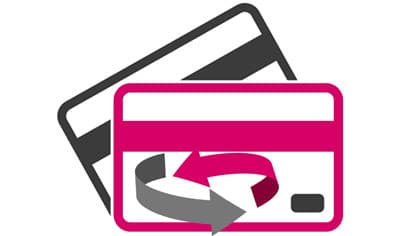Forex trading–the phrase itself may seem exciting or dodgy depending on who you ask. Although it is true traders can make money trading forex with a legitimate broker and if they have knowledge and experience, there unfortunately have been numerous forex scams in the past few years that have robbed consumers of millions.
Amid all of these forex trading schemes, governments and regulators are stating their intention to tighten rules to root out forex scams and crypto scams. This may seem like good news for consumers who are worried about the pitfalls of forex, but these moves may lead to unexpected results, such as social media schemes that won’t even bother trying to get licenses.
If you have lost money to a forex scam or any other type of fraud, it is important to seek the fund recovery services from a reliable financial company. Chargebax has the expertise and the right strategies to make your chargeback, wire recall or crypto recovery case successful. We consult with clients and develop strategies to bolster your claim and help you recover your funds.
The Increase in Forex Scams
People do not have to be consistent following the news to have heard about the many forex scams that have appeared in the past few years. Although cryptocurrency schemes, particularly those on social media, are topping the list of online fraud, according to the FBI, forex and binary options are still the favorite of unscrupulous parties offering false brokerage services.
Forex scams have been flourishing in the U.S. and around the world, especially since the COVID-19 pandemic when many people were at home in front of their computers and were looking for ways to make money fast. A few of them were caught in 2020 and 2021, but the ones that were apprehended represent just the tip of the iceberg.
For instance, in October 2021, the CFTC charged a Texas man for stealing $4 million from consumers. In November, an Israeli court charged 4 men behind a huge forex scam network and similar cases were seen in the Philippines. It is clear that these schemes can be run by an individual or by a huge network of scammers.
It is increasingly difficult to track down these online fraud, because people can easily adopt false identities including stock image pictures, pseudonyms on social media and professional-looking websites with false information. If they accept money only through cryptocurrency, the transactions are anonymous and they can easily steal money from consumers. Through fund recovery efforts, these cybercriminals can be caught, but the scale of the problem is daunting.
In addition, the regulations on the books are not standardized from one country to the next and it can be easy for financial companies to skirt the rules. Some countries, for instance, allow CFD trading, and some, like the US, outlaw it.
The question may arise of who is responsible if a trader uses a service or trades an asset that is not regulated in their area. Some brokers can blame this on the client and through the fine print, can try to evade allegations of fraud.
In addition, although the increase in trading scams is largely due to a rise in demand for online trading, lack of due diligence on behalf of the consumer, and technological advances that make it easier for unscrupulous parties to cover their tracks, some regulators and governments are treating the issue as if can be solved by tighter regulations.
It is not certain whether new or stricter rules governing forex trading will reduce the risk of fraud, but some governments and regulators are looking at ways to try to stem the tide.
How Rules May Change to Prevent Fraud
China may lead the way in imposing tighter regulations on forex brokers. It should be remembered that it was China that began would turn into a global crackdown on cryptocurrency platforms that led to a waning interest in digital currencies from 2017 until people rediscovered cryptocurrency in 2020.
Although the West may not adopt as strict a stance as China on forex trading, regulators may require greater market capitalization and a longer, more comprehensive application process to brokers applying for a license. It may result in fewer brokers receiving licenses from top-rated regulators or licensed brokers that have been identified in complaints losing their status.
What does This mean for Traders?
Tighter rules may sound at first like bad news for some brokers and good news for traders, but that is only for those who are committed to using regulated brokers. Unfortunately, many consumers are hungry for forex trades that can be advertised on social media by people who do not have to identify themselves, much less, to show a license.
If brokers do not get licensed or lose their license, this may mean fewer brokers to choose from, but the selection will be among high-quality brokers who are verified as secure. To consumers who already do their due diligence, this is a positive, but it may not reduce or combat forex scams.
An Unintended Effect of Tighter Regulations
Millions of dollars annually continue to be lost in forex scams and the majority of these are carried out by unlicensed brokers. This means that tighter rules won’t necessarily help, since those who cause the problem don’t really care whether or not they have a license, because they can always find a lot of people who don’t do research before opening a brokerage account.
That is why it is important always to examine a potential deal carefully before trading. Open an account only with a regulated broker. If you have lost money in a forex scam, seek guidance on fund recovery from a reliable financial company.
How Fund Recovery Can Help
Chargebax experts deal with numerous fund recovery cases and have helped our clients retrieve funds from crypto scams, forex scams, and disputes. We create intelligence reports, negotiate with banks and provide a plan of action that will help you get your funds back.

